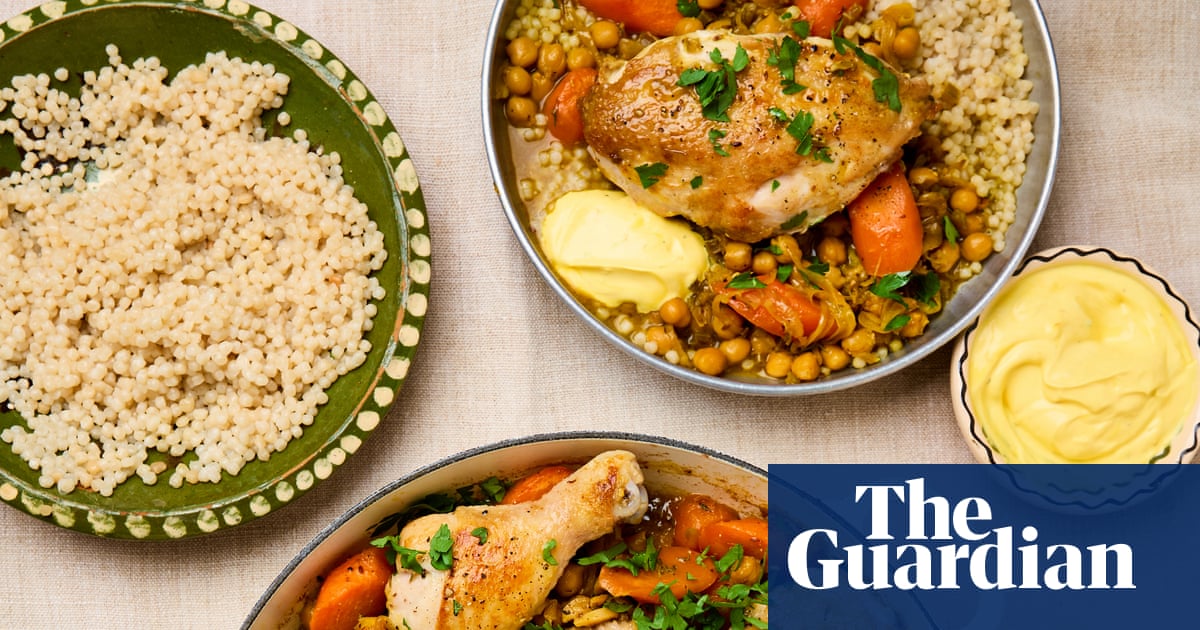The idea of pudding as a sweet finale to lunch or dinner is being inverted by the rise of the breakfast pudding. This topsy-turvy food trend includes everything from chia seed puddings designed to taste like cookie dough, overnight oats that resemble tiramisu and Weetabix biscuits transformed into what could be mistaken for vanilla cheesecake.
TikTok is the main instigator of the trend, causing dieticians, fitness influencers and homecooks to do battle with viral recipes. The process tends to involve soaking base ingredients such as oats and chia seeds overnight with natural plant additions such as dates and cacao powder or somewhat less healthy, processed items such as melted chocolate bars and spreads including Lotus Biscoff, a brand of caramelised biscuits. There are recipes inspired by Snickers, Kinder Bueno and Bounty bars alongside others modelled on cinnamon rolls and matcha lattes.
Jessica Hoffman, a content creator known online as Choosing Chia has racked up millions of views for her recipes that use plant-based ingredients spanning everything from carrot cake oats to chia puddings that riff on lemon cream pie. She credits the surge of interest in breakfast puddings to their versatility. “You can mix them up with anything from fresh fruit to nut butter to chocolate, so they feel indulgent while still being healthy,” Hoffman says. “They’re great for busy mornings. You prep them the night before and wake up to something ready to go.”

Now the trend is trickling into the mainstream. Marks & Spencer’s breakfast on the go range includes individual portion-sized tubs of salted caramel overnight oats alongside an apple crumble version for £2.90. Linwoods, a company that started out selling milled seeds in the 90s has added bags of strawberry and chocolate flavoured oats (£3.99) designed to be soaked overnight with milk or yoghurt to its lineup while the newly launched London-based brand Earthy sells overnight oats (from £3.95) inspired by Asian desserts including bubble tea and black sesame ice-cream.
Nichola Ludlam-Raine, the author of the book How Not to Eat Ultra-Processed and a spokesperson for the British Dietetic Association, describes the trend as “quite confusing”. From a nutritional point of view she favours overnight oats and chia puddings that are made using milk or yoghurt and feature plant additions such as nut butters, fresh fruit and natural flavourings such as cinnamon because they are “a good source of protein, slow-release carbohydrates, healthy fats and phytonutrients”.
But Ludlam-Raine cautions against those that use more processed ingredients such as chocolate bars. Describing them as “more like an actual dessert”, she suggests enjoying them once a week rather than daily.
She also says that some recipes that hail the high-protein aspect of a pudding regularly tap into what dieticians call the health halo effect. “When you call something high protein, people immediately think it’s better for you,” Ludlam-Raine says. “But it’s often distracting you from what’s really going on. Often the base ingredients are high in sugar or highly processed.”
But should we even be calling breakfast a pudding? Does something like oats masking as a tiramisu suggest that an actual dollop of creamy and chocolate tiramisu pudding should be avoided? Deanne Jade, a psychologist and founder of the National Centre for Eating Disorders says it’s a trend she isn’t worried about. “Why should we build a moral edifice around the notion of pudding?” she asks. Jade points to countries such as Italy and France where sweet pastries and biscuits are considered traditional breakfast foods. “Pudding means different things to different people,” Jade adds. “Building flexibility into what we eat and how we think about food can’t be a bad thing.”

.png) 5 hours ago
6
5 hours ago
6













































